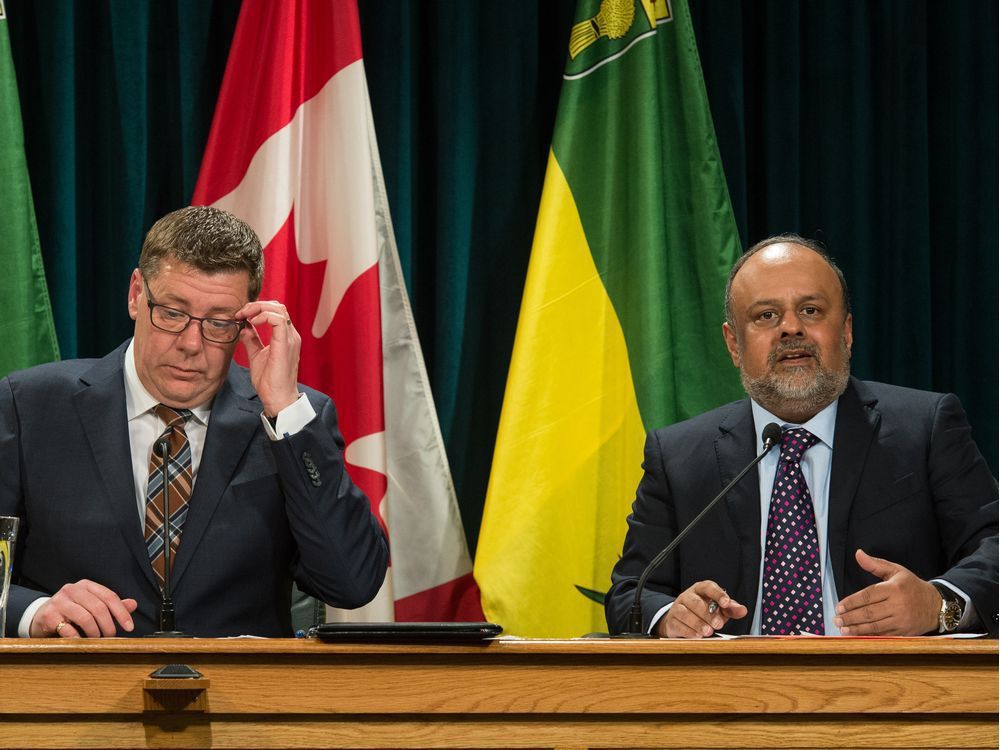when i first wrote about the arrival of sars-cov-2 in early march 2020, the question was whether or not the new virus would become a pandemic. at the time, most experts believed that we had already reached the point of no return.today, 18 months later, the answer is clear. you don’t need to be a scientist to know it. this pandemic is the worst public health emergency of international concern that our modern society has faced. to date,
more than 215 million cases have been confirmed and 4.5 million deaths have been reported globally.these are just the reported cases. in reality, the number of cases is higher, and for a variety of reasons: lack of diagnostic capacity, infection without symptoms, unwillingness or inability to be tested or to visit a health facility, etc. the number of deaths due to covid-19 is probably underestimated, both
in canada and
worldwide.in addition to changing the way we live our daily lives, the pandemic has brought scientific processes to public attention. researchers, used to working in the shadows, now had to provide solutions — and explanations — to a very real threat, and they have been doing this under the watchful eye of the public.one of these solutions, vaccination, is far from new. yet no matter what the context,
it has always generated news. so where are we now?still in our laboratories! i recently completed my phd in microbiology-immunology at laval university, research that i conducted under the supervision of
professor gary kobigner, who is known for co-developing an effective vaccine and treatment for ebola. this fall, i will begin a postdoctoral fellowship at the galveston national laboratory in texas, where i will continue my work on the transmission of, and vaccine development against, severe pathogens.
relevant questions
the world health organization (who) currently lists
13 available covid-19 vaccines, based on four different platforms, including mrna vaccines and viral vector vaccines. globally, more than five billion doses of vaccines have been administered. in canada, five of these vaccines are currently approved for use:
pfizer-biontech, moderna, astrazeneca, covishield and janssen, with
pfizer-biontech, moderna and astrazeneca in wide distribution. combined, these vaccines have been administered to approximately
70 per cent of canadians.however,
many people have raised questions about these vaccines. and it is fair to do so! the unknown has always been a source of anxiety for human beings, it is normal to
ask questions.so, after working tirelessly to develop vaccines against covid-19, what are scientists and doctors doing now?they are doing what they have always done: practising the best science they can within the limits of current knowledge. this scientific practice means continuing to evaluate the effectiveness of these vaccines
against new variants in labs, as the virus continues to mutate.it means continuing to record who has experienced side-effects (serious or not) from vaccination and continuing to investigate the potential links between these side-effects and the vaccine. the science they are practising involves studying the virus day and night to understand how it makes people sick, how we can prevent infection and what our options are for getting rid of it as quickly as possible.the term “current knowledge” is very important here. it is possible that more side-effects related to vaccination will be discovered much later. here’s why.
the scientific method
when vaccines are initially developed in the laboratory and tested on animals, it is normal that
not all side-effects are identified. a mouse is not a human, after all, and models cannot account for all the variables that can be found in a human. humans live in a complex environment and society where individuals each have their own genetics, immunity and lifestyle (exercise, smoking, nutrition).furthermore, the more people are vaccinated, the greater the likelihood of detecting a serious side-effect. clinical trials, where
drugs and vaccines are evaluated in a small group of individuals before being made available to the general population, are designed to be safe. volunteers are usually healthy adults, without serious
pre-existing medical conditions.vaccination is now widespread in many countries. it is therefore statistically normal that rarer effects (for example, ones that one in a million people develop) are now being observed. these effects are too rare to have been detected in a clinical trial of 10,000 people. this is the case for rare side-effects such as
guillain-barré syndrome and
bell’s palsy.the
scientific method requires that the following process is followed: observe a problem, formulate a hypothesis about its possible causes, evaluate it experimentally by controlling the variables, interpret the results and draw a conclusion.it can turn out that our initial hypothesis is wrong, and that is equally acceptable. this is how science was designed. i think that before the pandemic, people considered science infallible. opening up research to the general public has greatly changed this perception, especially as science quickly became embroiled in politics, particularly over
the question of the origin of the pandemic.
knowing how to communicate
and that’s where the problem comes from, among other things.
the key to effective scientific communication is not the science. it’s the communication. the results of laboratory experiments and clinical trials are what they are. either the vaccine or drug works to reduce mortality, or it doesn’t work, and we go back to the drawing board.so where does the reluctance about vaccines come from? one of the main problems is not the lack of information about the safety of the vaccine. almost everyone has access to this information on internet. the problem is the lack of trust in institutions,
which has been growing globally in recent years.but this trust can be earned — or regained. it just takes time, respect and empathy. a study by researchers at the
centre hospitalier universitaire de sherbrooke shows that an educational session about immunization that used motivational interviewing techniques with parents of infants resulted in a nine per cent increase in immunization rates compared with families who did not receive the sessions.
finding the right answer to a question
ultimately, the goal of science is to find the right answer to a question.of course, human nature being what it is, we are not immune to conflicts of interest. we need to ensure transparency about things like funding and links between scientists and potential investors. this is especially important since we are all responsible for funding research, whether through federal subsidies, which are partly derived from taxes paid by citizens, or through the ordinary purchase of drugs in pharmacies.since this concerns everyone, it is high time that the public became more involved. after all, scientific discoveries and health measures are everybody’s business. for example, few citizens are familiar with “
gain-of-function research.” these studies can involve a level of risk ranging from very low to very high. for example, producing a drug from a bacterium carries little risk and much benefit. however, increasing the virulence or transmissibility of a virus such as ebola or influenza could carry a lot of risk if such research were carried out by individuals with bad intentions, or in poorly secured laboratories.as with any aspect of science, a risk-benefit analysis must be carried out. note that in the vast majority of institutions where research is done, the committees assessing whether or not a study is worth doing are not only composed of scientists and students, but also members of the public.now each side just has to do its part. scientists need to do a better job of communicating their results and the interpretation of them, as well as specifically answering questions of interest to the public and regaining their trust. they need to listen and stop hiding behind mountains of data, complicated words and scientific articles that are not easily accessible to the general public.to those who are hesitant about vaccination, scientists should ask: “what data would make you change your mind?”, “why do you think the current data are insufficient?”, “why do you trust this individual, but not another or the institutions?” this is how constructive dialogue can be initiated and more in-depth reflection can begin.for their part, citizens can adopt better practices when it comes to getting information and not only consider information that fits into their personal narrative. it is also important to avoid falling into a spiral of conspiracy theories and trust in false experts. it is important to not be afraid to doubt, to find other sources to confirm or refute what you have just read and to ask trusted experts around you what they think.
this article is republished from the conversation under a creative commons license. read the original article.
 6 minute read
6 minute read








